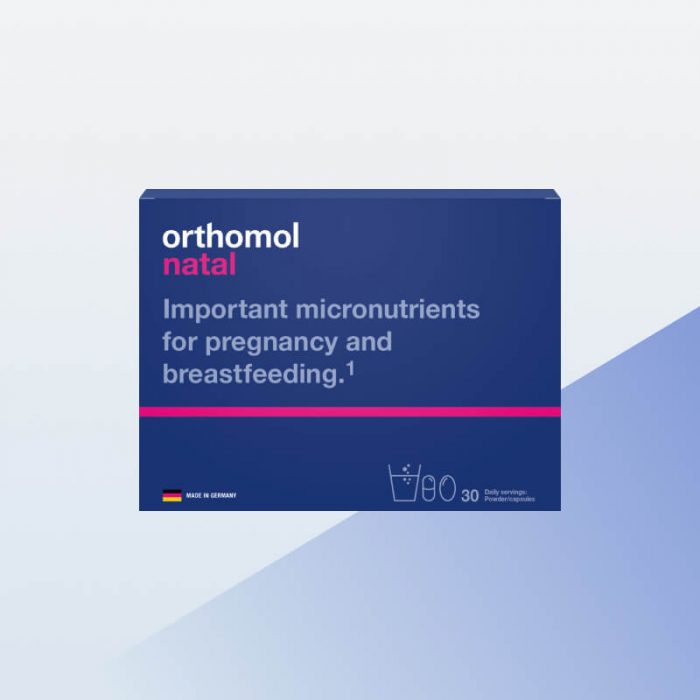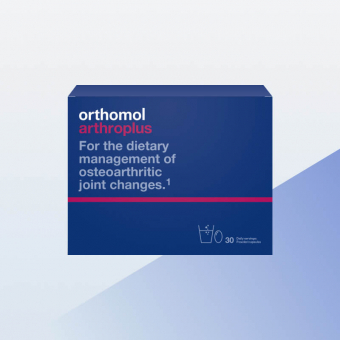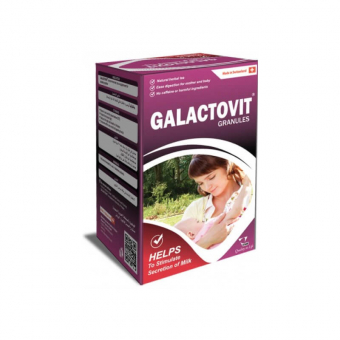
Excellent support during pregnancy
Important months pass between the time of fertilization and the moment when you hold your newborn baby in your arms for the first time. During this challenging time, your body works very hard and therefore relies on a supply of all-important micronutrients. A balanced amount of micronutrients is not only the basis of good health and well-being, but it also helps your baby to develop and your pregnancy to progress smoothly.

Micronutrient supply during breastfeeding
The need for micronutrients remains higher when you are breastfeeding. In addition to your own needs, breast milk passes on many nutrients to your baby that is required for healthy development. Pregnancy and birth have also made heavy demands on your body, which means that your regeneration and well-being will welcome some active support.
Orthomol Natal with benefits for mother & child
Orthomol Natal combines essential micronutrients with benefits for mother & child (omega-3 fatty acid DHA, vitamin D3, lactic acid bacteria cultures) and supplies important nutrients for the development of your child, your well-being, and a smooth pregnancy from the time of conception. It contains a combination of folic acid and Quatrefolic® as a contribution to normal maternal tissue growth during pregnancy. Quatrefolic® is an active form of folic acid that is available to the body without needing to be converted beforehand and therefore offers higher bioavailability.
Nutritional characteristics
Important micronutrients for pregnancy and breastfeeding
- Folic acid contributes to normal maternal tissue growth during pregnancy. Taking additional folic acid as a supplement increases folate levels in pregnant women. A low folate level exposes pregnant women to the risk of their fetus developing a neural tube defect. The positive effect is noticeable with a supplementary daily uptake of 500 µg of folic acid over a period of at least one month prior to conception and up to three months afterward (target group: women of childbearing age).
- Iron contributes to the normal formation of red blood cells and hemoglobin.
- The uptake of docosahexaenoic acid (DHA) by a mother contributes to the normal development of the brain and eyes of their fetus and breastfed infant. The positive effect is noticeable with a daily uptake of 300 mg DHA, in addition to the recommended daily dose of omega-3 fatty acids amounting to 360 mg DHA and EPA.
- Choline contributes to normal homocysteine metabolism.
- Calcium, magnesium, zinc, iron, vitamin D, vitamin B12, and folic acid have a role in the process of cell division.
- Vitamin C, vitamin B6, vitamin B12, vitamin D, folic acid, iron, zinc, selenium, and copper contribute to the normal function of the immune system.
- Calcium is needed for the maintenance of normal bones.
- Vitamin C, vitamin K, vitamin D, and also zinc and magnesium contribute to the maintenance of normal bones.
- Vitamin D contributes to the normal absorption/utilization of calcium.
- Iodine and selenium contribute to normal thyroid function.
- Calcium and magnesium contribute to normal muscle function.
- Vitamin C, vitamin B2, vitamin B6, vitamin B12, folic acid, niacin, pantothenic acid, and magnesium contribute to the reduction of tiredness and fatigue.
- With lactic acid bacteria cultures, lutein, and zeaxanthin.




